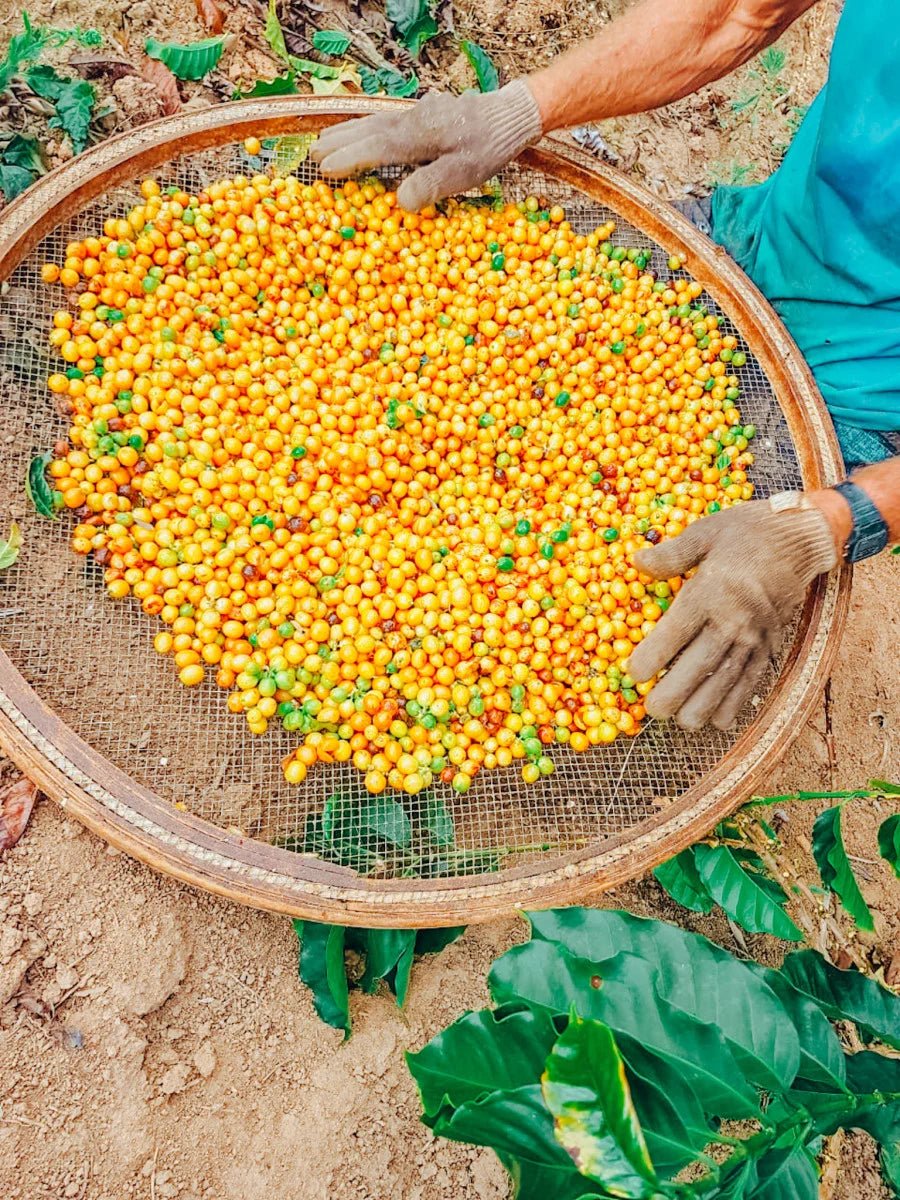- Brazil is the largest coffee producer in the world, responsible for a significant portion of global coffee production. The country's vast agricultural land, favorable climate, and expertise in coffee cultivation contribute to its dominance in the industry.
- Brazilian coffee is generally known for its mild and smooth flavor profile. Arabica beans from Brazil often exhibit nutty, chocolatey, and caramel notes, with low acidity.
- Coffee is deeply ingrained in Brazilian culture. It is a popular beverage consumed throughout the day, both at home and in social settings. Brazil has a vibrant café culture, with coffeehouses serving as gathering places for friends, business meetings, and leisurely conversations.
- A significant portion of Brazilian coffee is processed using the dry or natural method. This involves drying the coffee cherries in the sun, allowing the fruit to dry around the coffee bean before being removed. This process imparts a slightly fruity and sweet flavor to the beans.
- Brazil exports a significant amount of its coffee production worldwide. The country plays a crucial role in supplying coffee to global markets, including Europe, North America, and Asia. Brazilian coffee is often used as a base for blends and is highly sought after due to its availability, quality, and affordability.
- Brazil's coffee industry has a profound impact on the global coffee market, and the country's diverse coffee offerings continue to be enjoyed by coffee lovers around the world.
Indulge in captivating coffee stories at Newbery St. Specialty Coffee Roaster, where we aim to provide you with insightful knowledge and a deeper understanding of unique coffee origins.

